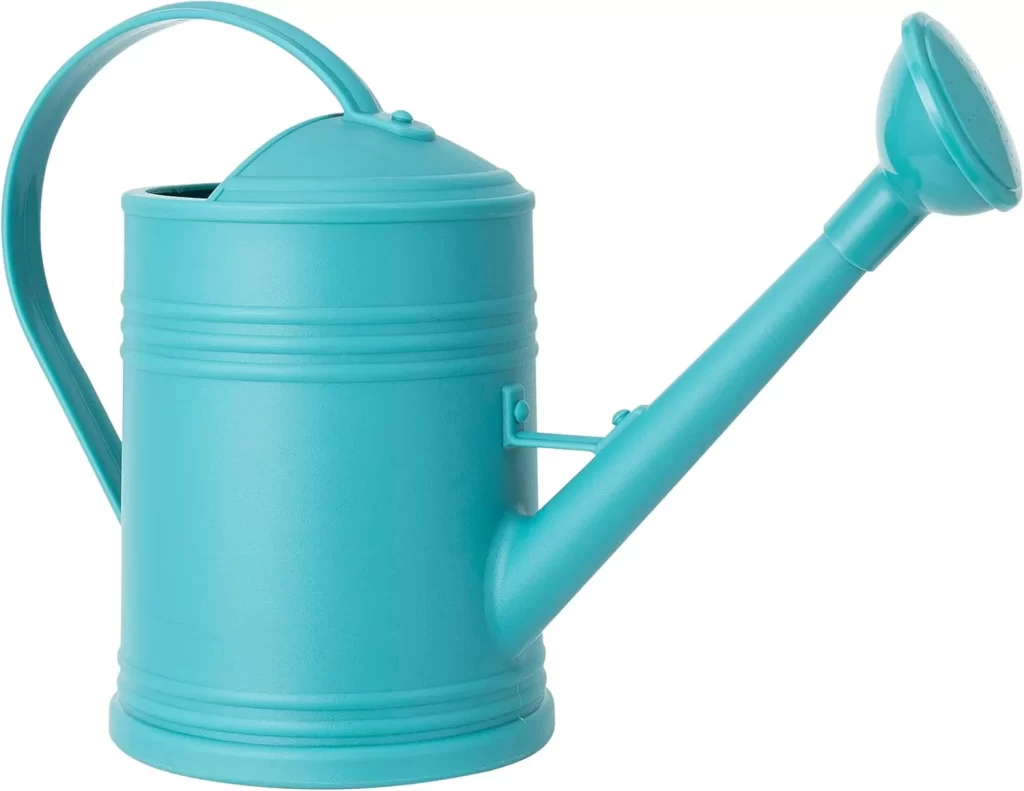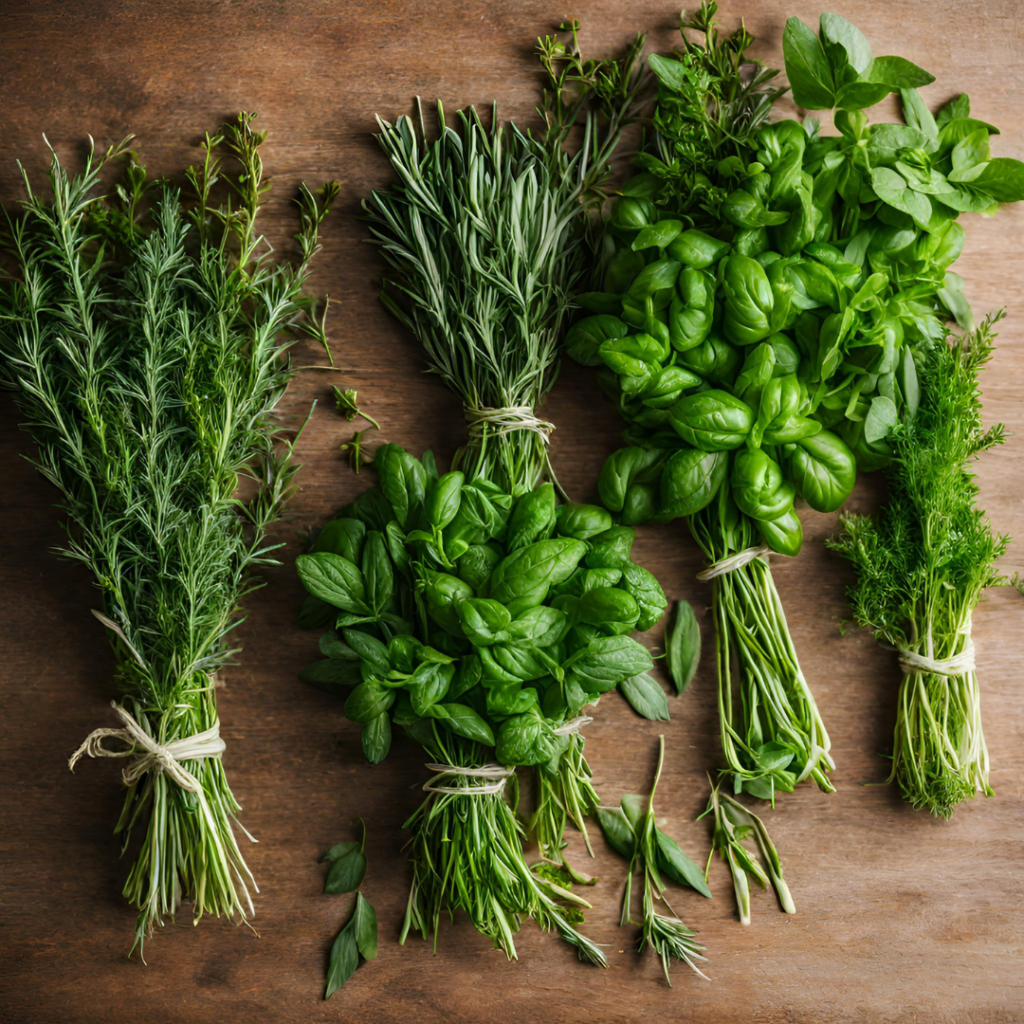The benefits of herb gardening outweigh the initial effort of setting up and maintaining the garden. I say this in every herb post because it’s true that there’s something truly magical about stepping outside and plucking a handful of fragrant basil or mint to elevate your culinary creations or soothe your senses with aromatic teas and homemade remedies.
[wptb id=2054]In this article, we cover everything from selecting the perfect herbs for your garden to harvesting and using them in delicious dishes and home remedies.
Benefits of Growing Herbs
Herb gardening provides fresh, organic herbs right at your fingertips, bringing a myriad of benefits to both your well-being and your kitchen adding a burst of flavor to your meals at a moment’s notice, and saving you trips to the store.
Flavor at Your Fingertips
A vibrant collection of aromatic herbs just a few steps from your kitchen. Whether it’s fragrant basil for a quick caprese salad, zesty cilantro for a homemade salsa, or fresh mint for your evening tea, having an herb garden means you can elevate your cooking instantly. The flavor of freshly harvested herbs is far superior to dried or store-bought varieties, bringing an irresistible brightness to your meals.
Organic Convenience
Growing your own herbs eliminates the mystery of what’s been sprayed on your produce. Your garden provides fresh, organic herbs free from pesticides and preservatives. Plus, there’s no rush to use up store-bought herbs before they spoil—you can pick just what you need, right when you need it. It’s a sustainable and waste-free approach to enjoying the freshest ingredients.
Boosts Nutrition and Taste
Herbs aren’t just flavorful; they’re nutritional powerhouses too. Many herbs, like parsley, basil, and thyme, are rich in antioxidants, vitamins, and essential oils that promote good health. Freshly cut herbs retain more of these nutrients compared to prepackaged or dried options. For example, adding a sprinkle of fresh rosemary or oregano to your dishes can provide a small but impactful boost of iron, calcium, and vitamin C.
Natural Beauty
Herb gardens offer more than practical benefits—they’re a visual treat for your space. Lush green foliage adds texture, while flowering varieties like lavender, chamomile, or chives introduce pops of color. Some herbs, such as dill and fennel, even attract beneficial pollinators like bees and butterflies. An herb garden is a great way to enhance the aesthetics of patios, balconies, or backyard spaces, creating an environment that’s both functional and inviting.
Well-Being Benefits
There’s something deeply calming about nurturing a garden. Herb gardening, in particular, is accessible for gardeners of all skill levels, making it an enjoyable and rewarding activity. The tactile act of planting, pruning, and harvesting can ease stress, improve mood, and give a sense of accomplishment. Plus, herbs like lavender or chamomile double as mood-boosting remedies—grow them for their beauty and use them to make soothing teas or calming sachets.
Selecting the Best Herbs for Your Container Garden
Selecting herbs for your container garden is where the fun begins! Whether you’re a seasoned cook or an aspiring herbal remedy expert, choosing the right herbs allows you to enjoy fresh flavors, fragrances, and even health benefits at your fingertips. With so many herbs to choose from, consider your personal preferences, gardening space, and needs. Here’s a look at two popular categories to help guide your choices:
Culinary Herbs: Flavorful Staples for Your Kitchen
For many, growing culinary herbs is the heart of herb gardening. They’re easy to grow and provide vibrant, fresh additions to your dishes, from everyday meals to special creations. These herbs thrive in containers, offering convenience right on your doorstep, balcony, or windowsill. Some popular culinary herbs include:
- Basil: Sweet and fragrant, basil is perfect for pesto, pasta dishes, and fresh salads. Pro Tip: Pinch back flower buds to encourage leafy growth.
- Rosemary: With its earthy aroma and sturdy leaves, rosemary elevates roasted vegetables and meats. It also thrives as a potted plant with minimal care.
- Mint: A versatile herb that adds a refreshing zing to teas, desserts, and cocktails. Keep mint in a container to prevent it from taking over your garden.
Keep in mind these are just a few herbs that not only add incredible flavors to your meals but also bring fresh aromas to your outdoor spaces.
Medicinal Herbs: Natural Remedies for Wellness
Many people enjoy growing herbs for their health benefits, whether for making herbal teas, creating tinctures, or even for skin care. Medicinal herbs can be simple to grow and often have the added benefit of fragrant blooms or soothing scents. When considering medicinal herbs for your container garden, some popular options include:
- Chamomile: Known for its calming properties, chamomile is a go-to for soothing teas and mild skincare. Grow it in a sunny spot for abundant blooms.
- Lavender: A fragrant herb cherished for relaxation and essential oil production. It’s as lovely in a bouquet as it is in a calming sachet.
- Echinacea: Prized for immune-boosting teas, echinacea features bold, cone-shaped blooms that attract pollinators while offering health benefits.
In addition to these, many gardeners also consider growing herbs like lemon balm, sage, or st. john’s wort for their medicinal uses. Before harvesting these herbs for therapeutic purposes, ensure you’re using them correctly and researching their full benefits.
Selecting the Ideal Location for Your Herb Garden
With our herb wish list in hand, we turn our focus to selecting the ideal location to make those herbs thrive. Where you plant your herbs plays a critical role in their overall health and success. Here are a few key factors to keep in mind as you search for the perfect spot.
Sunlight
The majority of herbs are sun worshippers, thriving best in full sunlight. Most herbs require at least 6 to 8 hours of direct sunlight each day to produce strong growth and vibrant flavors. A sunny location ensures your herbs can photosynthesize efficiently, boosting their health and vitality.
Consider placing your herb garden in a south-facing spot for the maximum amount of sun, particularly if you live in cooler climates where sunlight may be more limited.
For container gardens where direct sunlight can warm up pots, your balcony or windowsill mimicks the warmth of outdoor garden spaces, making them ideal placement options.
While most culinary and medicinal herbs appreciate the sun, a few, such as mint, parsley, and cilantro, can tolerate partial shade, especially in hotter climates. Therefore, it’s important to assess sunlight availability based on both seasonal changes and specific herb needs.
Soil Quality
Healthy soil is the foundation of any successful herb garden, and herbs are particularly sensitive to poor drainage or overly compacted soil. In general, herbs prefer soil that is light, well-draining, and slightly acidic to neutral. The following tips will help ensure the best soil conditions for your plants:
Well-draining Soil
Good drainage is critical to prevent waterlogging, which can lead to root rot. Adding organic matter such as compost or well-rotted manure will help improve soil texture, encouraging better airflow to plant roots. If you’re using containers, ensure they have drainage holes to allow excess water to escape.
Soil Amendments
If your soil is clay-heavy or lacks nutrients, enrich it with compost, peat moss, or sand to promote healthy growth. A simple soil test can help determine the pH, but most herbs prefer a slightly acidic (pH 6.0-7.0) to neutral (pH 7.0) range. Adjustments can be made by incorporating limestone to raise pH or sulfur to lower it if necessary.
Soil Depth
Make sure your garden area or pots are deep enough to support root growth. Most herbs grow well with a root depth of 8-12 inches.
Accessibility
Plant your herb garden in a location that’s easy to access for watering, harvesting, and maintenance.Planting your herb garden in a location that is easy to access ensures that you can properly maintain it throughout the growing season. Accessibility is important for:
Regular Watering
Herbs need consistent moisture, and watering can become a chore if the garden is hard to reach. A location near a hose or watering system makes the task simpler.
Harvesting Convenience
One of the joys of having a herb garden is harvesting fresh ingredients for your cooking. Choose a location that’s close enough to your kitchen so you can easily snip leaves or flowers at a moment’s notice, bringing ultimate freshness to your meals.
Routine Care
An accessible garden allows for simple pruning, deadheading, and pest management. Having herbs close at hand makes tending to your garden much easier, encouraging consistent upkeep. Plant your herb garden in a location that’s easy to access for watering, harvesting, and maintenance.
Pot or Ground Garden?
When selecting the location, consider whether you will be growing herbs in the ground or in pots. If you’re working with pots, you’ll have the flexibility to move them around to follow the sun or bring them indoors during harsh weather. If planting directly in the ground, be sure the site allows for efficient drainage and isn’t prone to flooding after rainfall.
Container gardening offers flexibility and allows you to control soil quality and drainage, making it ideal for urban dwellers or those with limited space. Be sure to check out our article on container gardening here!
Essential Tools and Supplies
Before diving into your herb gardening adventure, it’s worth equipping yourself with the right tools. Having the essentials on hand not only makes gardening easier but also sets you up for success from the start. Here’s a starter kit to keep within arm’s reach:
Garden Gloves
Protect your hands from thorns, dirt, and blisters with these durable, breathable garden gloves. Perfect for all-day wear while planting or pruning.

Hand Trowel
Dig, plant, and cultivate with this sturdy, ergonomically designed hand trowel. Its lightweight build and comfortable grip make gardening tasks easier and more enjoyable.

Watering Can with a Detachable Spout
Nurture your herbs with this practical and stylish watering can. The detachable spout delivers a gentle shower, perfect for preventing soil displacement and caring for delicate seedlings.

Potting Mix
Give your herbs a strong foundation with this premium potting mix, specially blended for container gardening. Perfect for promoting healthy roots and thriving plants.

Planters
Show off your herbs in these stylish and functional containers. Designed with built-in drainage, they keep your plants healthy while adding charm to your garden space.

By having these tools ready to go, you’ll streamline your herb gardening process and spend more time enjoying your flourishing plants.
Final Thoughts
From selecting the perfect herbs and planting them with care to harvesting and utilizing them in creative ways, we’ve covered the ins and outs of cultivating fresh herbs for culinary and medicinal purposes.
Embrace the joy and satisfaction that comes from nurturing and harvesting your own herbs. There’s always something new to discover and explore in the world of herbs.

